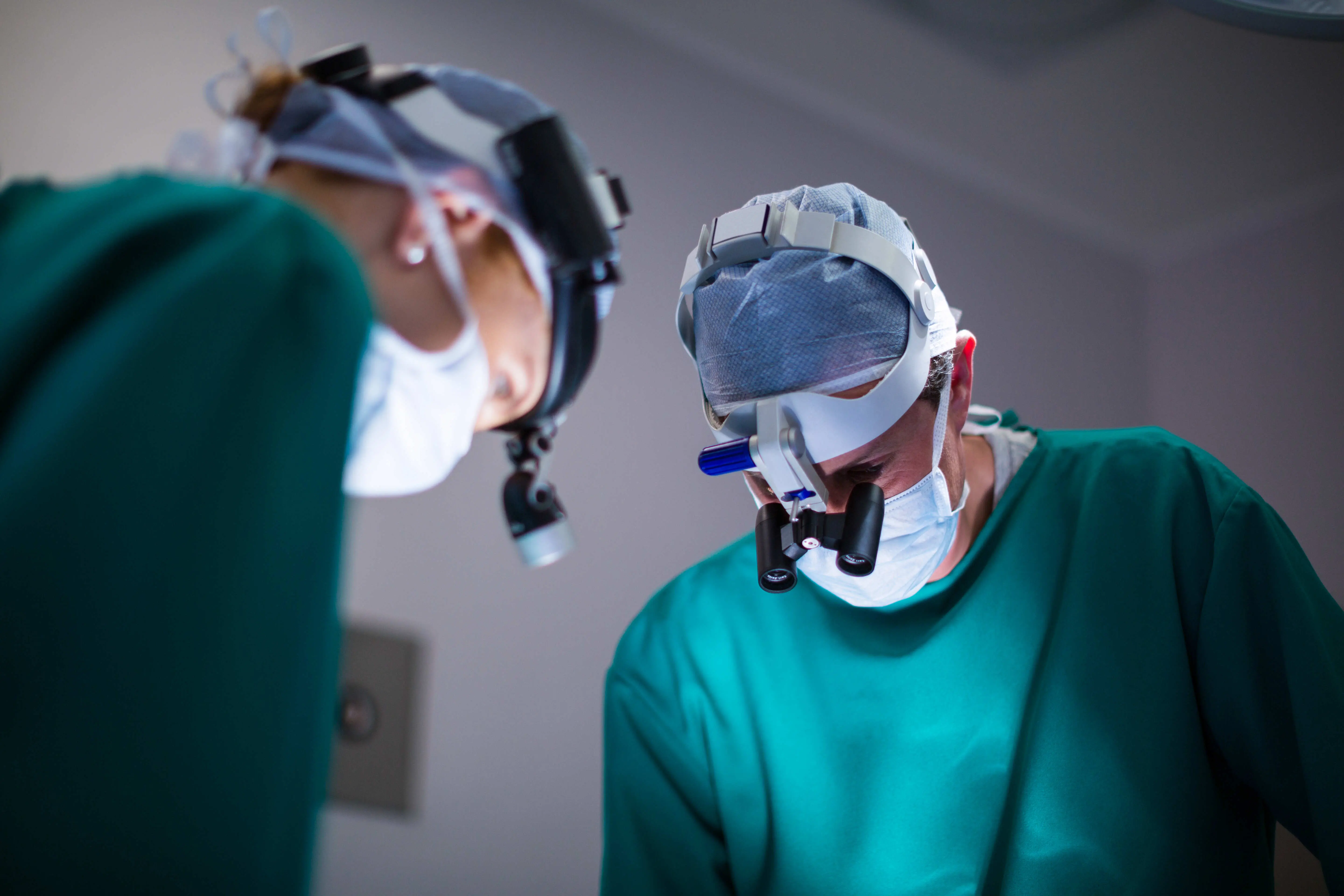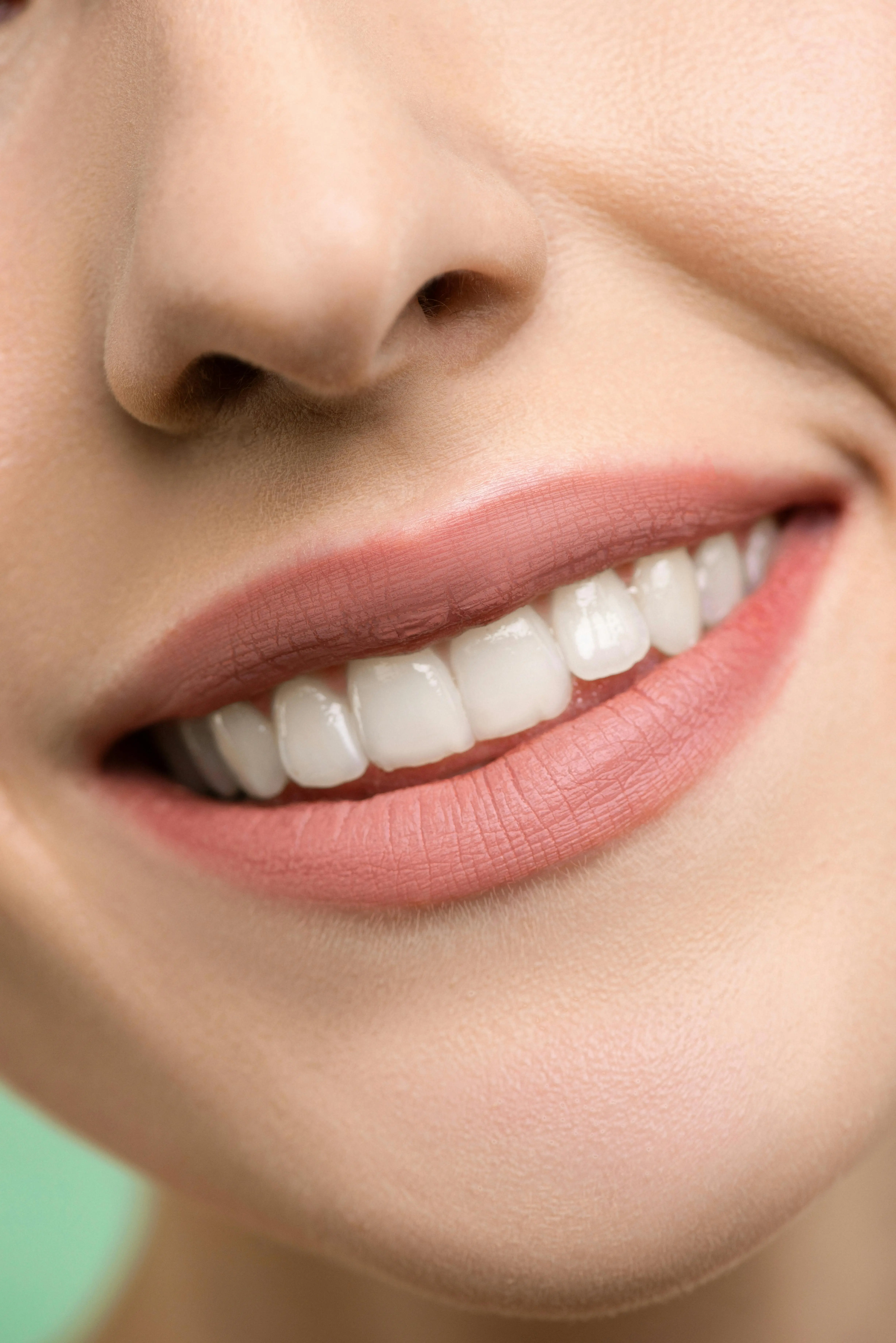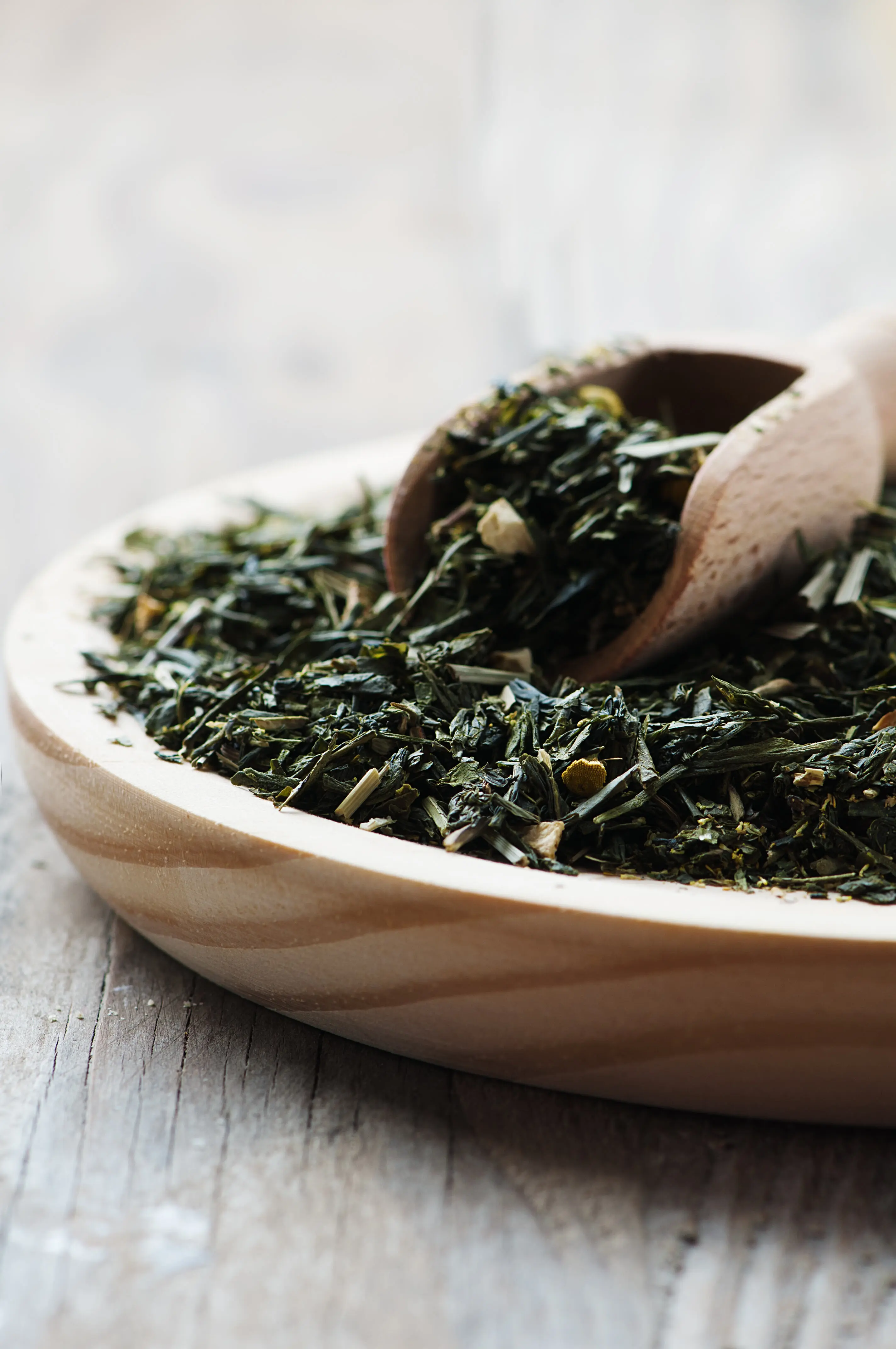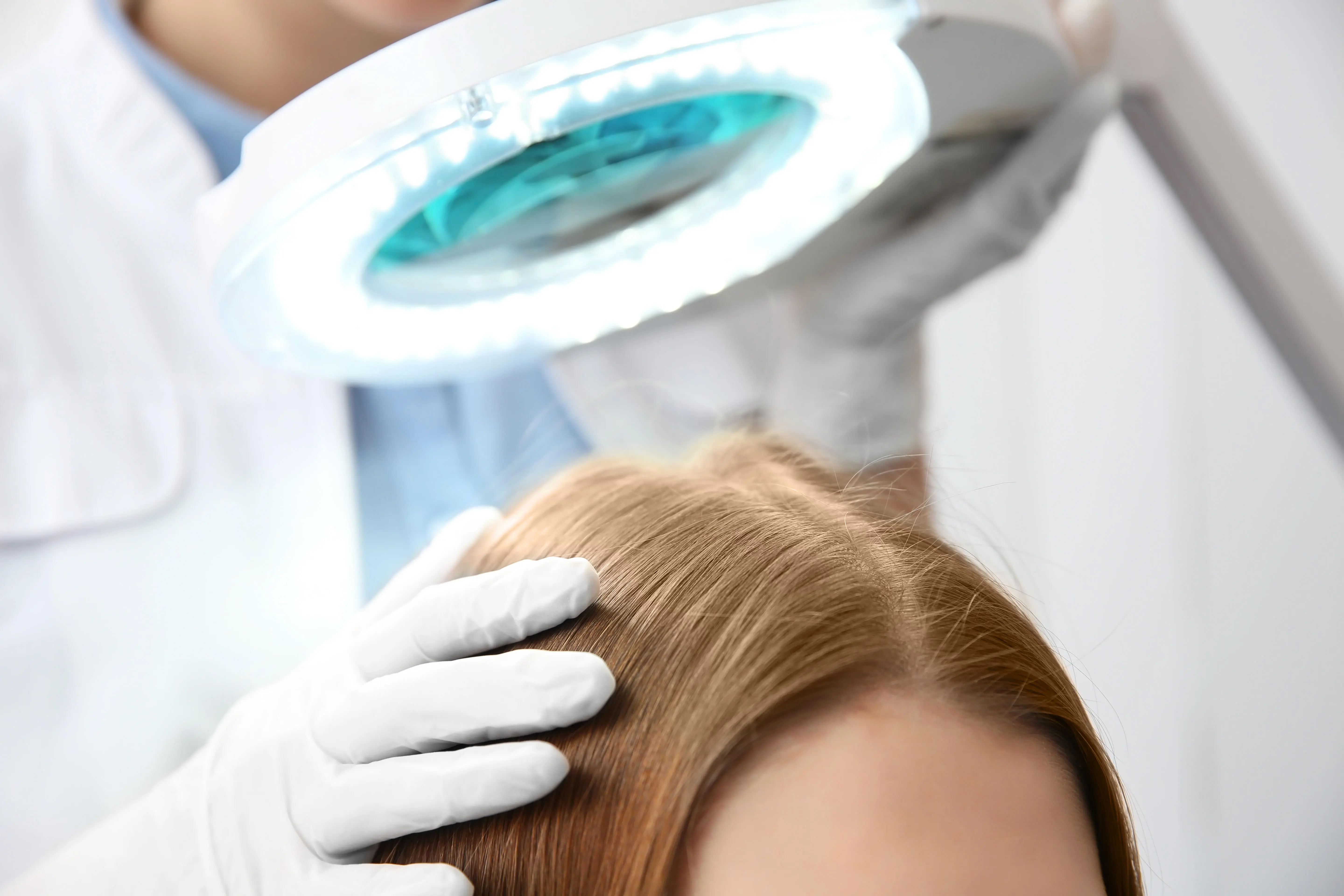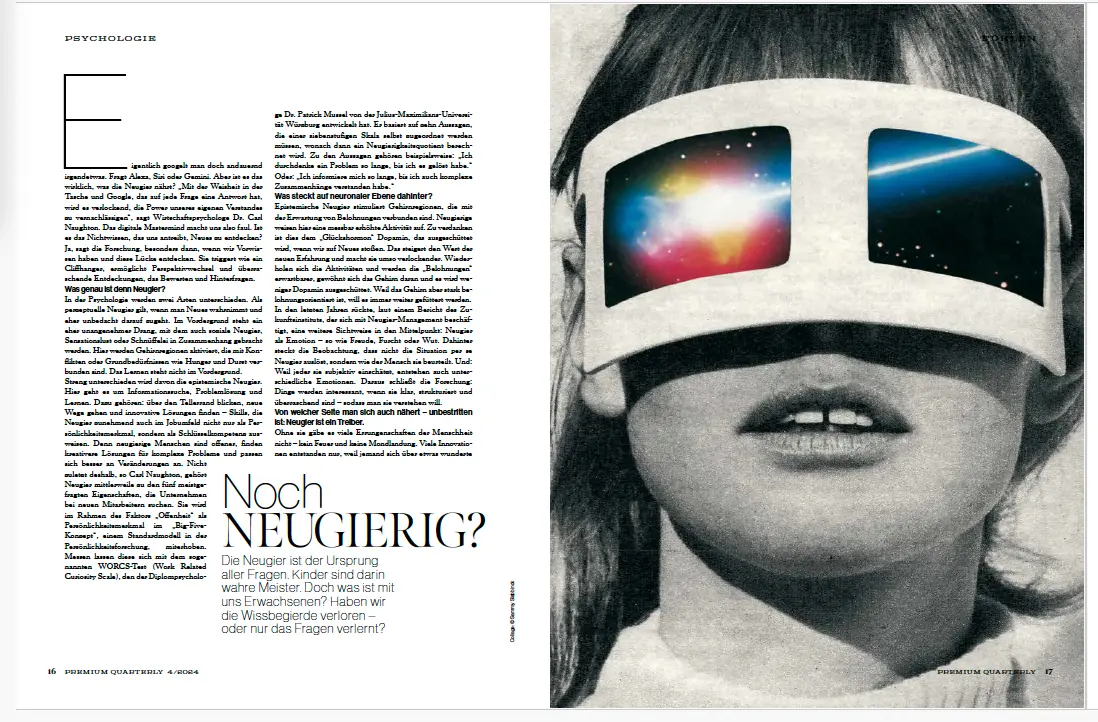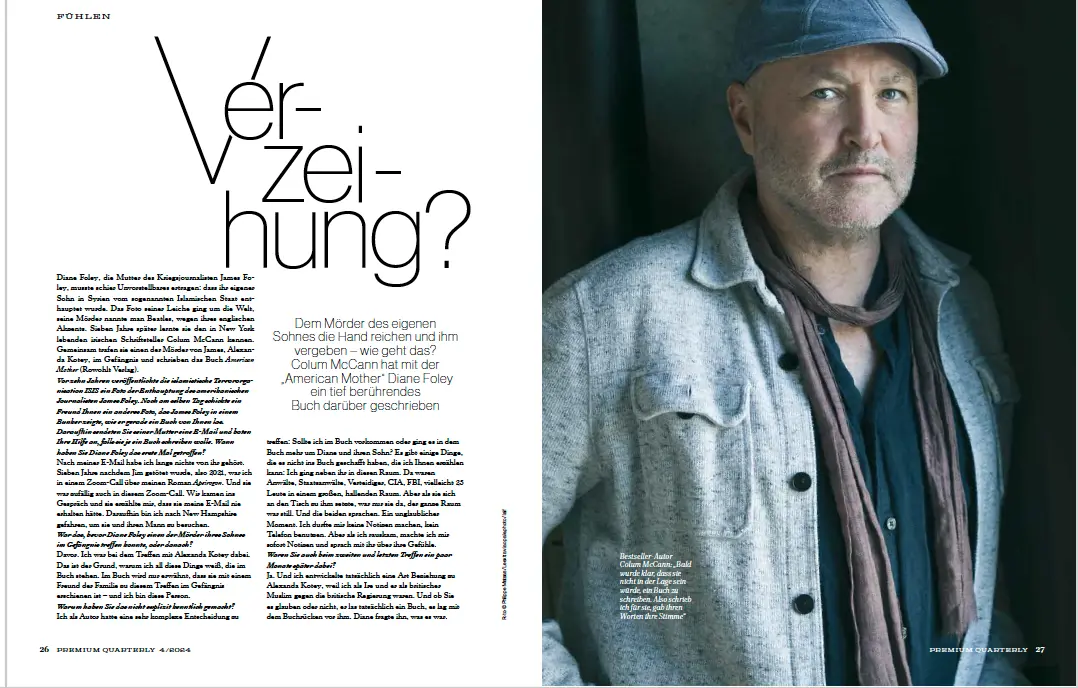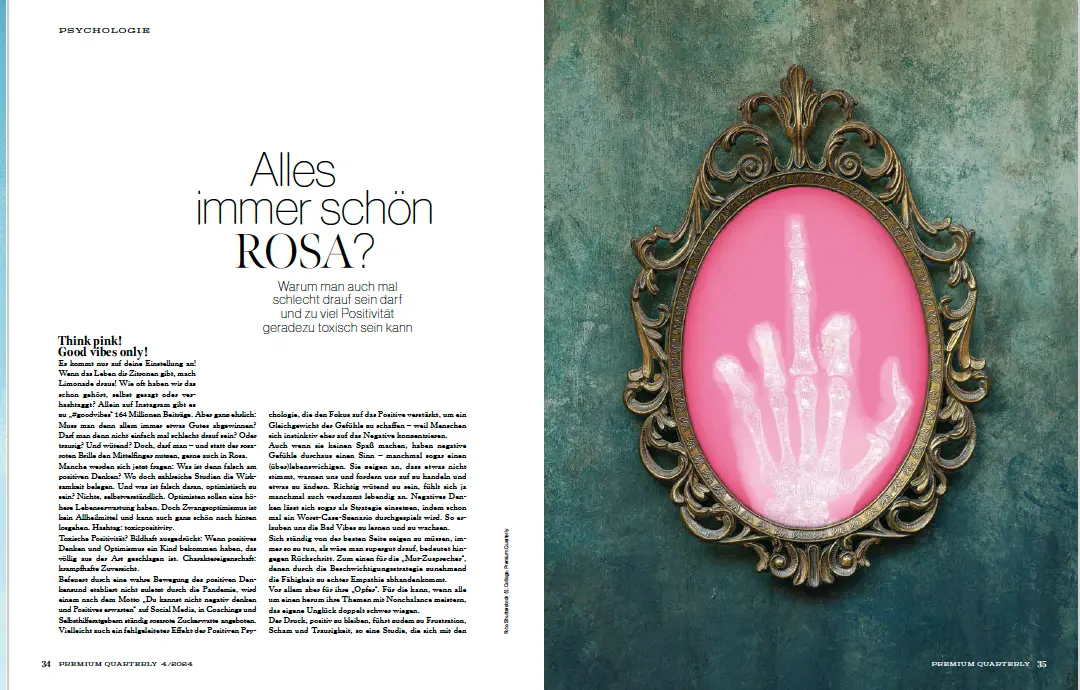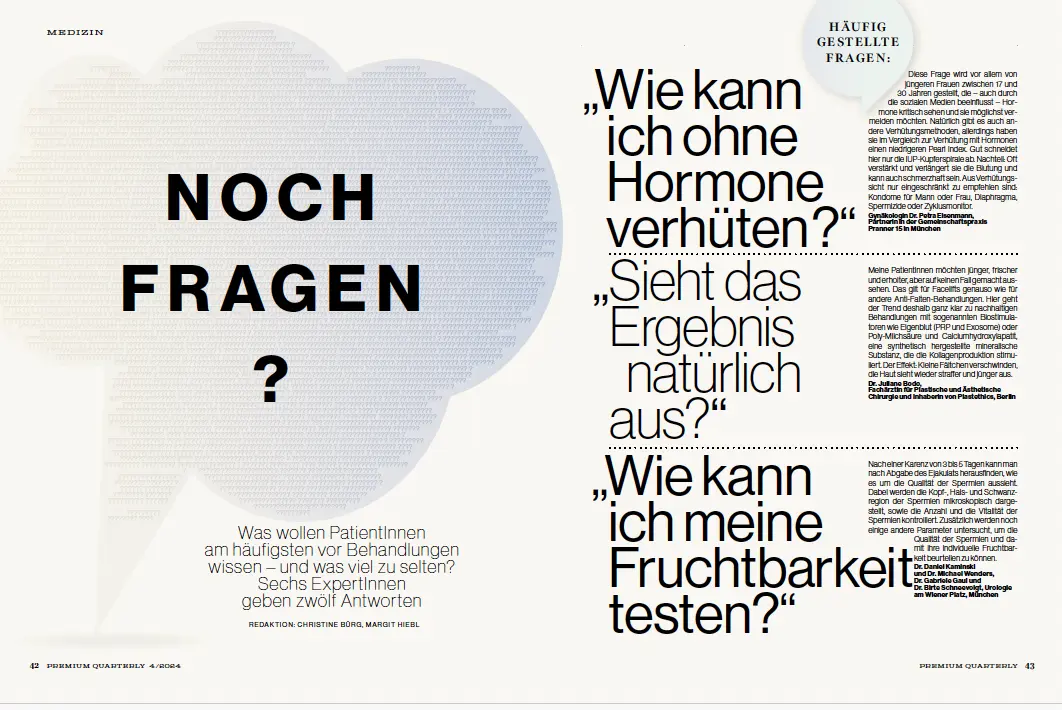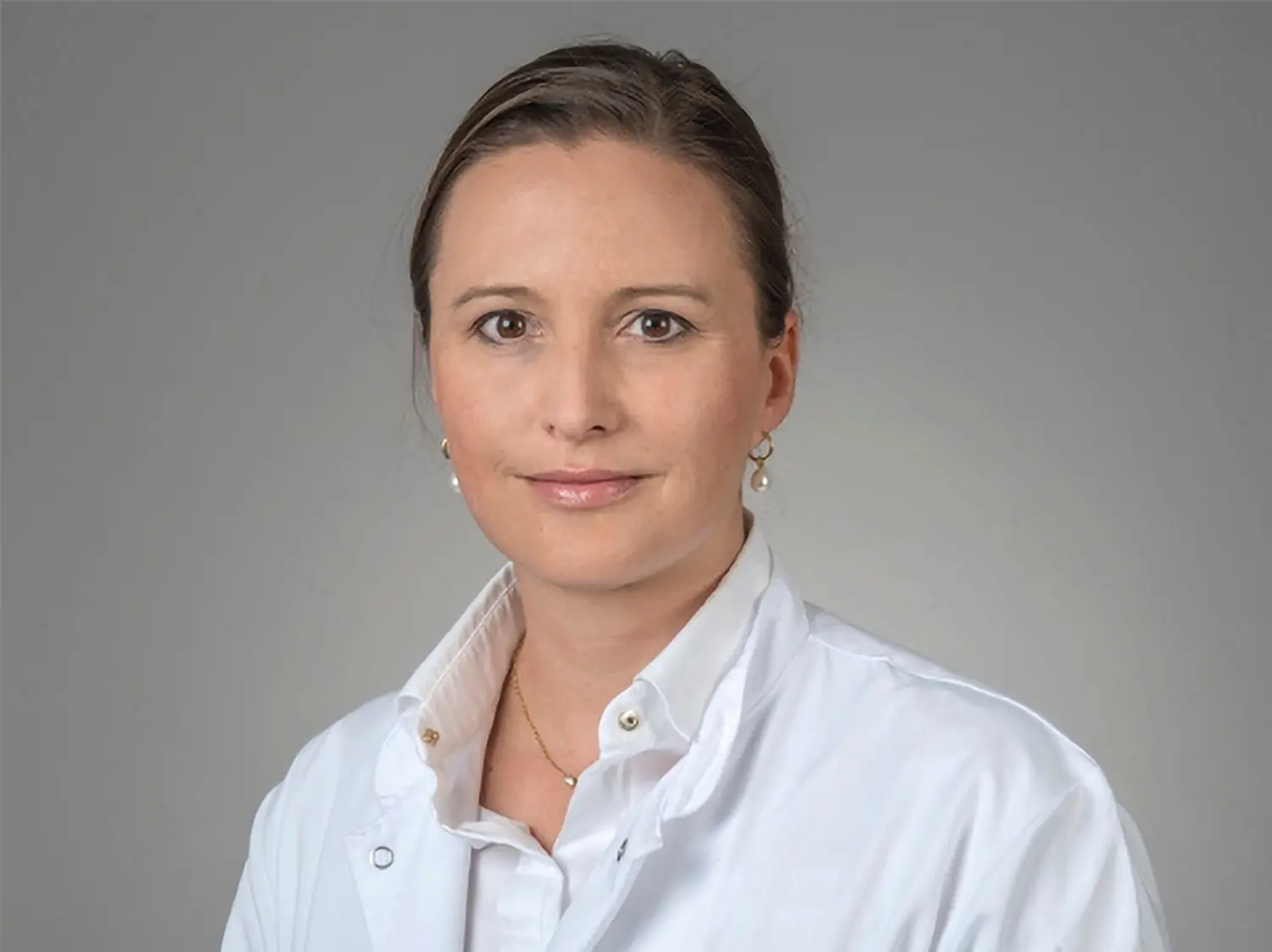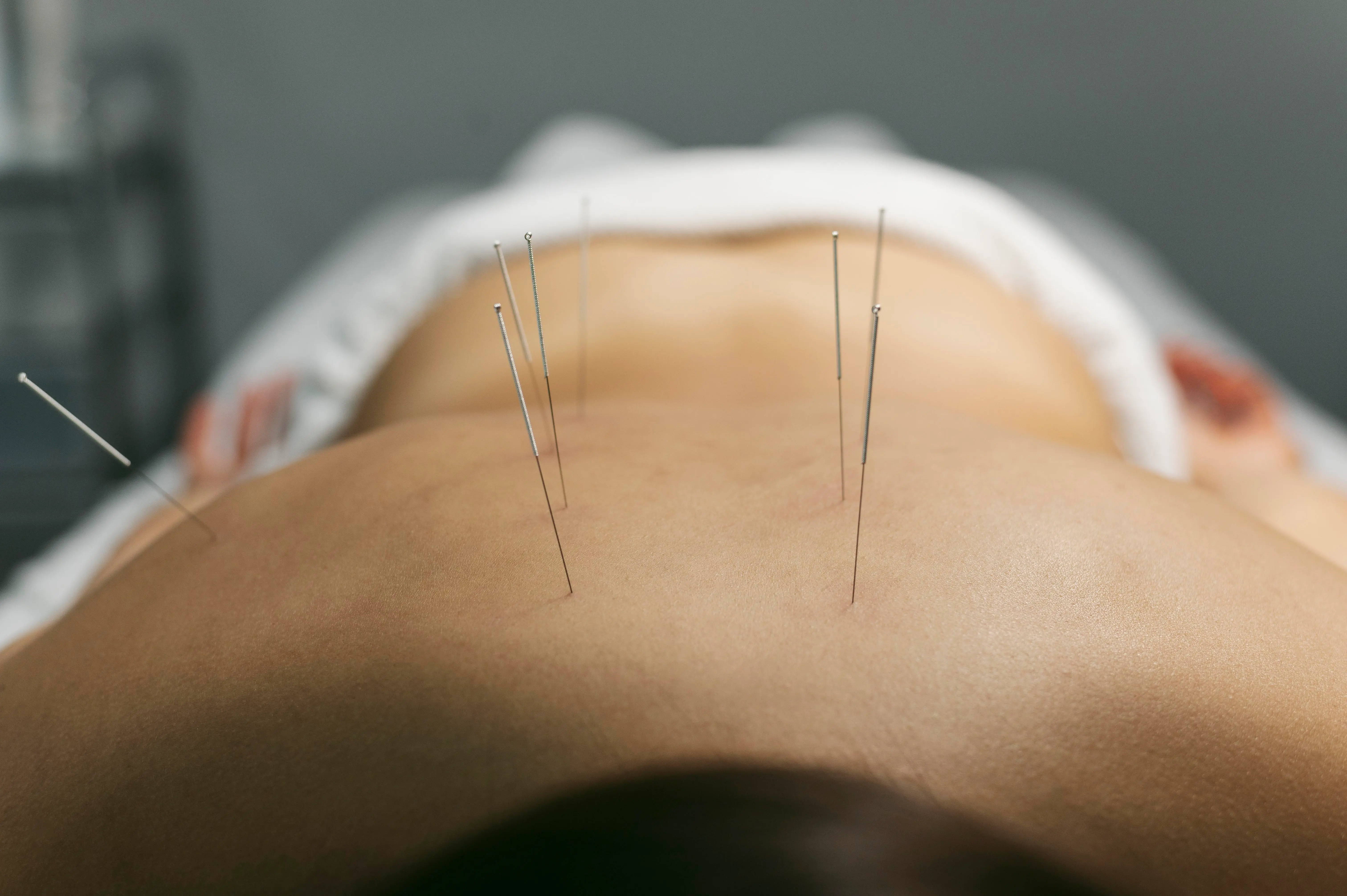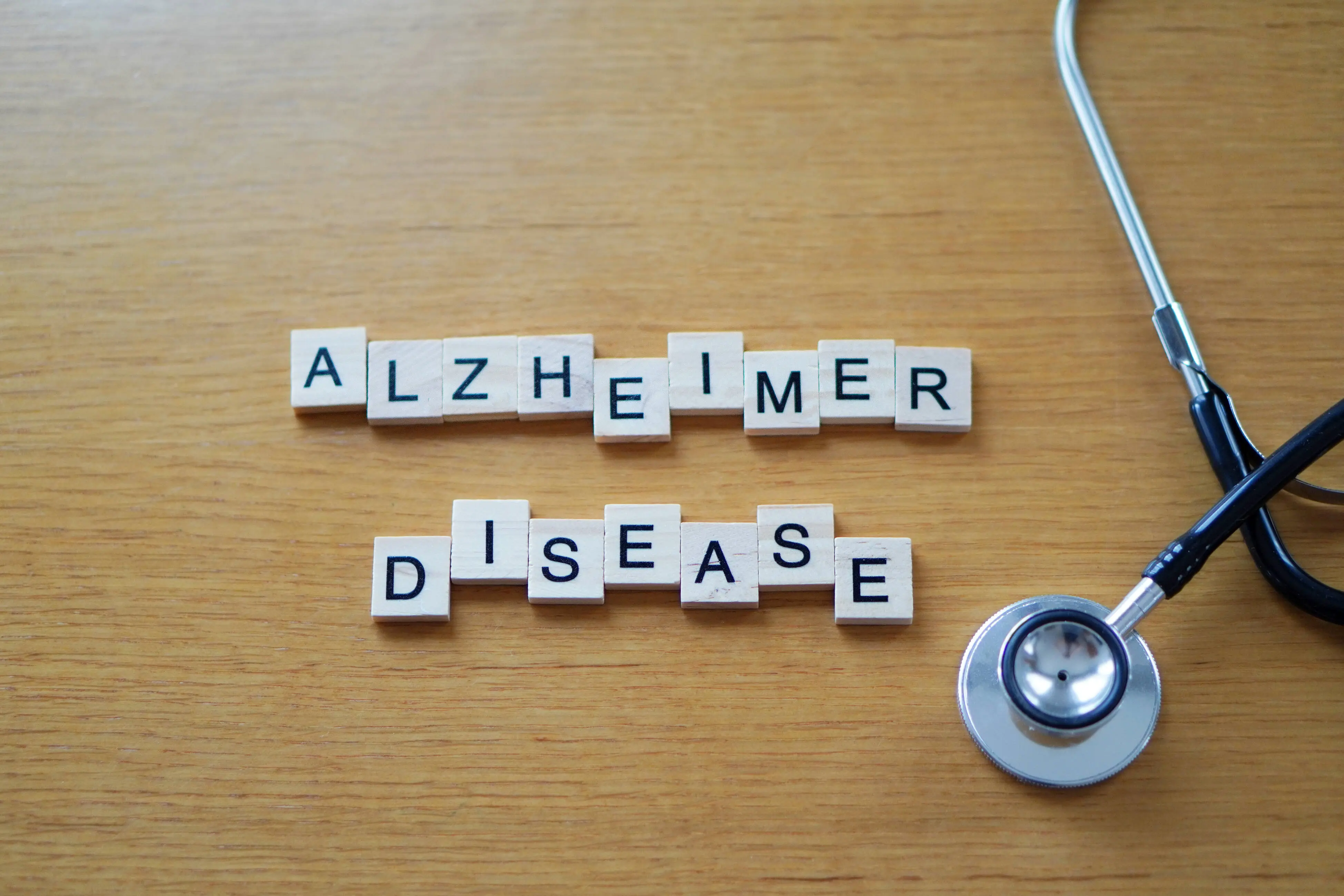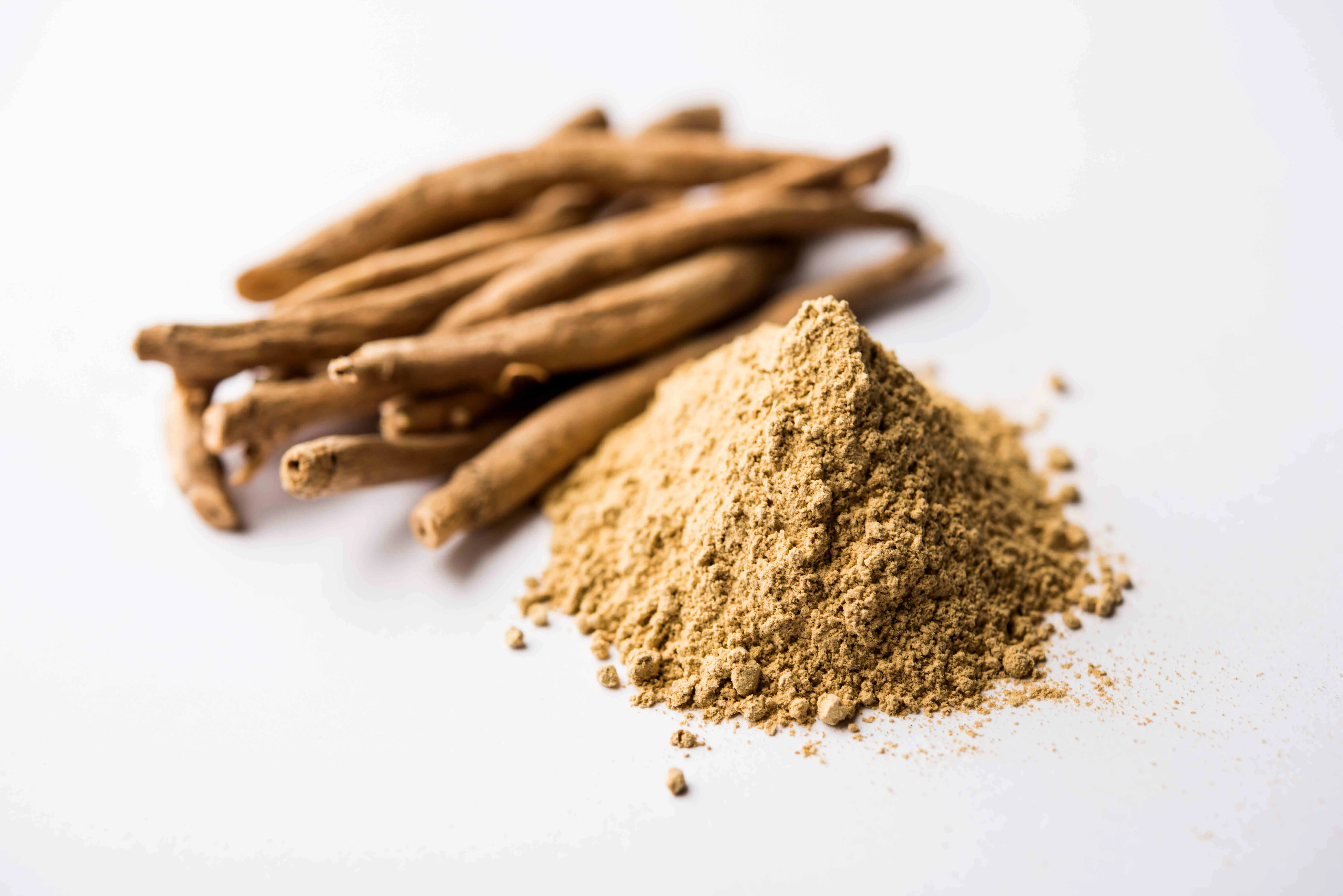"The public has an insatiable curiosity to know everything, except what is worth knowing," Oscar Wilde once remarked with his usual sharp wit. But in today's information age, where over 8.5 billion Google searches are made daily, it becomes apparent: Our questions are no less curious, yet often quirky. Why does genuine curiosity frequently fall by the wayside? And how do you satisfy the hunger for answers that are truly relevant?
The new issue of Premium Quarterly, the magazine for Health, Wellbeing, and Premium Lifestyle, is dedicated to these considerations under the motto "Any more questions?" The issue invites readers to discover curiosity on every page – and not only to gain information but also to acquire real knowledge.
Enclosed you will find an excerpt of topics from the new issue of Premium Quarterly:
Have we adults lost our curiosity – or just forgotten how to ask questions?
Still curious?
Curiosity is much more than a fleeting urge – it activates our reward system and releases dopamine, the so-called happiness hormone. This connection makes new insights particularly appealing and drives us to repeatedly seek answers. However, without clear and understandable impulses, the dopamine flow dries up – and with it, curiosity. Clear, structured, and surprising incentives are crucial to maintaining curiosity. They promote creative thinking, strengthen mental fitness, and can contribute to a more fulfilling and happier life in the long term.

